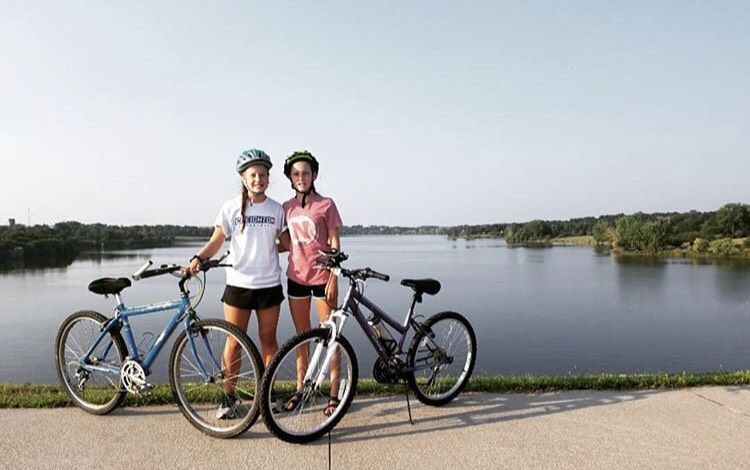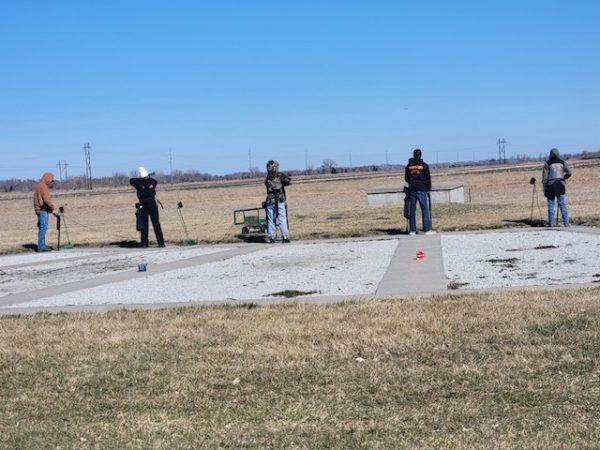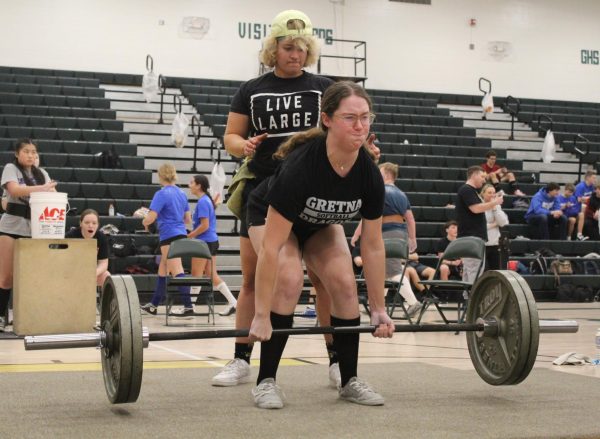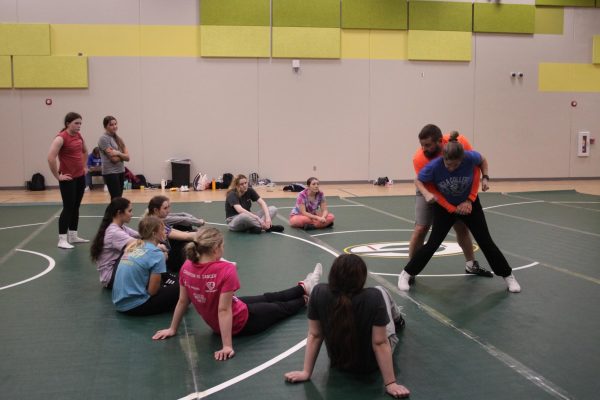Resting Up and Strengthening
Cross-Training Essentials
Taking the Off Days Easy- Grace (22) and Rachel Pemberton (24) bike around Wehrspann Lake after a difficult workout. I think biking is the best type of cross training for running,” G. Pemberton said. “I cross train mostly on the weekends but if I felt I had a rough workout that day at practice I will get on my bike to clear my head, so I can be mentally ready for the next practice.” The Pembertons consistently bike throughout the year at many different destinations.
Fatigue is the tipping point for most athletes. Logging extensive miles or quick races can result in tired legs, cramps and injuries. Cross-training is a way to help ease these aches and improve endurance. Cross-training is any physical activity that allows for an eased exercise away from the main sport. This ease and recovery can help prevent potential injuries.
“When we run we exert at least three times our body weight of force onto [the] knees and feet,” cross country coach Mr. Bryce Brunswig said. “[Cross training] is mostly to get their muscles warmed up, to work on some cardio, and some breathing endurance without harming their legs. It’s just allowing your body to recover after a hard workday, because otherwise if I just continue to pound, pound, pound I don’t see the benefits from that.”

Training Never Stops- Kellen McLaughlin (20) darts to the finish after a few easy running days beforehand. “I think cross-training is something that gives you an edge over your opponents,” McLaughlin said. “When an athlete is versatile and able to train in several different ways, they will reap the benefits during a game, performance, or meet.” McLaughlin also swims during his track and cross country seasons.
Many runners take advantage of this form of recovery, such as senior Kellen McLaughlin. As a three-sport athlete, cross-training is essential for him.
“Too often, athletes develop a myopic view and narrow themselves to one sport or activity,” McLaughlin said. “Getting into a pool has an extremely low impact on the bones in your body, which is great in preventing injuries. Also, while swimming, athletes obtain a full-body aerobic exercise while also strengthening muscles, losing fat, and giving the lungs a workout. In my mind, swimming is the best kind of cross-training.”
McLaughlin uses cross-training consistently throughout his training. He will use his swimming to assist with his running, and his running to help with his swimming.
“One of the biggest perks of cross-training is the ability to gauge where I’m at and if I need to change my routine,” McLaughlin said. “For example, if I am getting too burnt out in swimming or developing some shoulder pains, I can easily go on a run instead, which will eventually come to benefit my swimming. In this case, I cross-train very often.
Sophomore Grace Pemberton also swims competitively to balance her skills. She sees these effects carry over into other seasons.
“Swimming is a very mentally challenging sport so by pushing myself to my limits during this season,” Pemberton said. “I think it helps me push myself harder while running. Also joining swimming has made me be aware of my breathing and breath control, which I never realized how beneficial it was to running.”
While Pemberton swims in the offseason of track and cross-country, she takes a different approach in-season. She regularly bikes on her off days, for recovery after training.
“I think biking is the best type of cross-training for running because it’s easier and is good for a rest day,” Pemberton said. “It is very good for mental preparation for the tough days ahead.”
Cross-training can be a very crucial part of an athlete’s routine in the heat of the season, but the athlete must be weary. Cross-training, due to its relaxed nature, can create a habit of ease. After all, it is important to remember that the only way a runner can get faster, a swimmer to swim with more swiftly or a cyclist to bike quicker is to do that sport.
“If you want to become faster at running, you have to run,” Mr. Brunswig said. “During the season, I won’t get faster at running by biking five times a week. It’s more of a supplemental thing that I can do to build my aerobic base and increase my endurance.”
Regardless, cross-training is very beneficial to an athlete and can ensure a quicker recovery. These activities can be a great value to any athlete when they are meant with the difficult grind of the season.

Ethan Menning is a sophomore at GHS, and this is in his first year on The Voice staff. He is a sports editor who enjoys getting the story out in a real...












